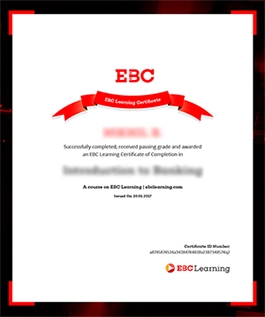Filing a Petition under IBC – Initiating CIRP, 2nd Edn.
The Insolvency and Bankruptcy Code has changed the way NPAs are managed in India. IBC consolidates all the laws related to insolvency in India by creating a single law. It helps to ensure confidence of banks, foreign investors, and associated companies in crisis mitigation mechanisms.
As a law practitioner, insolvency practitioner or a creditor, it is essential to learn the procedure for filing an insolvency petition. This course takes the learner through the various aspects of filing petitions under the IBC whether as a financial creditor, operational creditor or as a corporate applicant.
Requirements
You can take this course, if:
- You are a recent law graduate or graduating from law school
- You have a basic understanding of legal practice and procedure
- You are a creditor/corporate initiating IRP
- You already know the basics of Insolvency & Bankruptcy Law (If not, you can also watch our course on ‘Insolvency Essentials’)

The unluckiest insolvent in the world is the man whose expenditure of speech is too great for his income of ideas.
Christopher Morley- 1. Introduction
- 1.1 Welcome
- I. Examination pointers
- 2. General meetings
- I. Relevant sections
- 2.1 Locus and jurisdiction
- 2.2 Who cannot invoke?
- 3. Filing by financial creditors
- I. Relevant sections
- 3.1 Introduction
- 3.2 Initiating the Insolvency Resolution Process on default in repayment of financial debt
- 3.3 Person who can file an application under Section 7
- 3.4 Specific category of financial creditors
- 3.5 Gathering information
- 3.6 Setting the wheels in motion
- 3.7 Filing the application: Filling the form
- 3.8 Crash landing or safe landing
- 3.9 Procedural aspect
- 3.10 Accepting or rejecting application
- 3.11 Withdrawal
- 3.12 Admitting application and appointing IRP
- 3.13 Moratorium
- 3.14 Public announcement
- II. Examination pointers
- III. Full text of leading cases
- ☆ Feedback
- 4. Filing by operational creditors
- I. Relevant sections
- 4.1 Introduction
- 4.2 Demand notice with invoice
- 4.3 Demand notice Form 3
- 4.4 Disputing the operational debt
- 4.5 Initiating CIRP
- 4.6 Procedure for filing
- 4.7 Notice to corporate debtor
- 4.8 Accepting application
- 4.9 Rejecting application
- II. Examination pointers
- III. Full text of leading cases
- 5. Insolvency by corporate applicant
- I. Relevant sections
- 5.1 Introduction
- 5.2 Eligibility as a corporate applicant
- 5.3 Application by corporate applicant
- 5.4 Filing as corporate applicant
- II. Examination pointers
- 6. Conclusion
- 6.1 Road ahead
- I. Exercises
- Exercise Set I
- Exercise Set II
- Exercise Set III
- Exercise Set IV
- II. INDEX (FULL TEXT OF CASES)
- INDEX: Full text of cases
- ☆ Feedback
WHY TAKE THIS COURSE?
Business entities find it difficult to file an insolvency application before the NCLT. This course is a continuation of our Essentials Course on Insolvency and Bankruptcy Code. It is a part of our practical series. It endeavours to present in a simple manner the filing procedure of insolvency applications before the National Company Law Tribunal.
This course will help you:
- File an insolvency petition as a financial creditor
- File an insolvency petition as an operational creditor
- File an insolvency petition as a corporate applicant
- Know what is to be included in an insolvency petition
Instructors

Dr Charu Mathur
AOR, Supreme Course
Dr Charu Mathur is an AOR with the Supreme Court. Dr Charu has rich and diverse expertise in corporate, commercial, civil, criminal and constitutional law matters. She has represented parties which include cricketing bodies and educational institutions like IIT Jodhpur, NLU Jodhpur, BPUT Orissa, MPUAT Rajasthan, private engineering and medicine colleges of Gujarat and Orissa. She also represents Hon'ble Allahabad High Court before the Supreme Court. On the non-litigation side of work, she does corporate and general advisory, reviewing, redlining and drafting of agreements. She also undertakes due-diligence work related to solar projects in India and land due diligence work in Gujarat.

If you are trying to get out of debt, you have to be willing to treat everything as expendable.
Phil McGrawCertificate
Complete this course and exercises to earn a certificate. Share it with your friends, colleagues, and employers.*
*You must Subscribe to get a certificate.

Limit Reached or Trial Expired
You have reached the limit of 2 audit enrollments or your trial period has expired.

